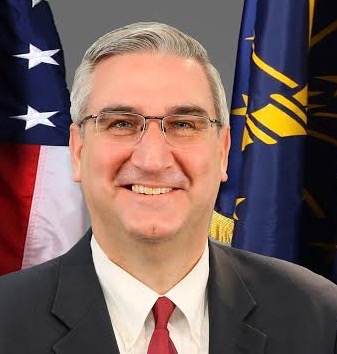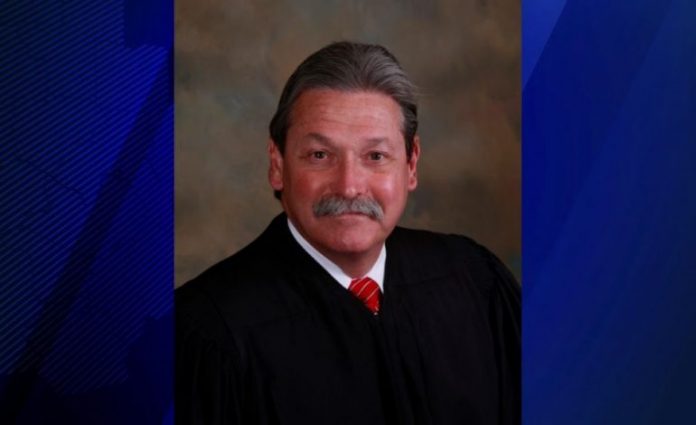Attorney General Curtis Hill today announced that Indiana, as a member of a coalition of states, has reached landmark settlements with Fiat Chrysler and supplier Robert Bosch. These settlements provide for combined civil-penalty payments of approximately $2.5 million to Indiana and more than $171 million to 52 jurisdictions nationwide. Bosch supplied and helped program the illegal emissions “defeat device†software used by both Fiat Chrysler and Volkswagen in their diesel vehicles.
“Whenever businesses take unfair advantage of Hoosier consumers or otherwise disregard Indiana state laws, they should anticipate that our office will come after them hard for whatever damages they have done,†Attorney General Hill said. “This settlement represents the fruits of such labor. We will continue to work hard every day to protect consumers and defend the rule of law.â€
Fiat Chrysler
Following a nearly two-year investigation, the Office of the Attorney General found that Fiat Chrysler Automobiles N.V., its U.S. subsidiary FCA US, LLC, its Italian affiliate V.M. Motori S.p.A. and V.M. North America, Inc. – collectively, “Fiat Chrysler†– installed unlawful “defeat device†software and undisclosed Auxiliary Emissions Control Devices (“AECDsâ€) in 1,645 Jeep Grand Cherokee and Dodge Ram 1500 diesel vehicles that the automaker sold in Indiana. These vehicles are from the model years 2014-16.
The Attorney General’s Office also found that Fiat Chrysler cheated on federal and state emissions tests by calibrating the vehicles’ software to conceal that the vehicles emitted higher than permitted levels of harmful nitrogen oxides (NOx) in real-world driving conditions. Further, Fiat Chrysler misled consumers by falsely claiming the “Eco-Dieselâ€-branded Jeep SUVs and Ram 1500 trucks were environmentally friendly and compliant with the law in all 50 states.
The settlements announced today require Fiat Chrysler to pay Indiana $1,028,125 in civil penalties under Indiana’s consumer protection laws for deceptively and unfairly marketing, selling and leasing the vehicles to consumers. Nationwide – excluding the separate penalties the company will be required to pay to the federal government and California – the multistate agreement is expected to result in payments totaling $72.5 million to 49 states, Puerto Rico, the District of Columbia and Guam.
Indiana’s settlement also prohibits Fiat Chrysler from engaging in future unfair or deceptive acts and practices in connection with its dealings with consumers. Further, it requires Fiat Chrysler to carry out its obligations under a related settlement agreement in the Multidistrict Litigation (“MDL Consumer Settlementâ€) pending in the U.S. District Court for the Northern District of California.
The MDL Consumer Settlement, once approved by the MDL court, will resolve claims brought by a national class of affected consumers. The MDL Consumer Settlement requires Fiat Chrysler to: eliminate the “defeat device†features from the relevant software through a software “flash fixâ€; provide eligible owners and lessees extended warranties; and, together with co-defendant Bosch, pay eligible owners who take their vehicles to authorized dealers for the software repair an average restitution of approximately $2,908 and pay lessees and former owners restitution of $990.
Related settlements between Fiat Chrysler and the U.S. Department of Justice, the Environmental Protection Agency, the California Air Resources Board and the State of California also require Fiat Chrysler to make available 200,000 upgraded catalytic converters to mitigate air pollution across the country when installed by Fiat Chrysler vehicle owners as replacements to their existing catalytic converters.
Assuming all owners and lessees nationwide participate, this will result in total available restitution of approximately $307 million, including approximately $4.7 million to affected owners and lessees of 1,645 vehicles in Indiana.
The settlements with Fiat Chrysler follow earlier comprehensive settlements reached between Indiana, along with other state, federal and private actors, and Volkswagen for equipping, marketing, selling and leasing more than 570,000 Volkswagen, Audi and Porsche diesel vehicles with illegal “defeat devices.â€Â Under those settlements, Volkswagen paid Indiana civil penalties of more than $6 million, fixed or repurchased the affected vehicles, and paid restitution to Indiana consumers.
Bosch
Bosch is a multinational engineering company well known for its consumer products. It is also a major supplier to the global automotive industry. Among the products Bosch supplies to its auto manufacturing customers are the electronic control units (“ECUsâ€) that house the complex software that controls nearly all aspects of an engine’s performance, including emissions systems. When Volkswagen, a Bosch customer, was revealed to have systematically utilized “defeat device†software in its diesel vehicles, several states attorneys general, including Indiana Attorney General Curtis Hill, commenced a separate investigation into the role played by Bosch in enabling its customers to potentially violate federal and state emissions regulations. Today, after another Bosch customer, Fiat Chrysler, has settled claims that it too employed illegal “defeat devices,†the Attorney General’s Office is able to announce the conclusion of that separate investigation into Bosch’s conduct.
As a result of this investigation, Attorney General Hill concluded that Bosch facilitated the implementation of the “defeat device†software in more than 600,000 Volkswagen and Fiat Chrysler vehicles over a period that spanned more than a decade. Notwithstanding concerns about the illegal “defeat devices†raised internally, to management, and externally, to Volkswagen and Fiat Chrysler, Attorney General Hill found that Bosch continued to assist these customers as they implemented the “defeat devices†and concealed their misconduct from regulators and the public.
Under the terms of the proposed settlement with the Indiana Attorney General, Bosch will pay Indiana $1,490,940 in consumer and environmental civil penalties. The agreement also includes precedent-setting injunctive terms and requires Bosch to maintain robust processes to monitor compliance and to refuse to accommodate requests for software development and programming that could result in the installation of “defeat device†software.
Today’s settlement with Bosch recognizes the important role that suppliers play in ensuring regulatory and legal compliance in the automotive industry and establishes the important precedent that those who knowingly go along with their clients’ wrongful conduct will be held accountable
Under a multistate agreement involving Indiana and 49 other jurisdictions – including Puerto Rico, the District of Columbia, Guam and all states other than California, Texas and West Virginia – Bosch will pay a total of $98.7 million under the jurisdictions’ consumer protection and environmental laws and make a separate $5 million payment to the National Association of Attorneys General (NAAG) for training and future enforcement purposes. Under the related MDL Settlements, Bosch will also pay approximately $27.5 million to consumers who purchased or leased the affected Fiat Chrysler vehicles. Bosch earlier paid more than $275 million to consumers who purchased or leased the affected Volkswagen vehicles.





